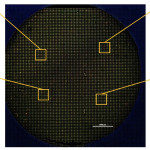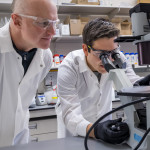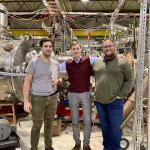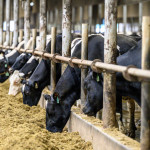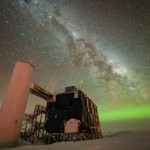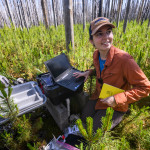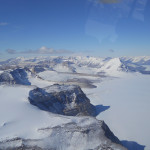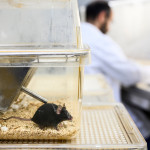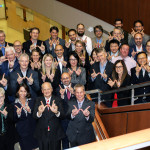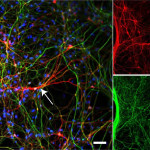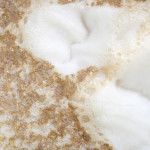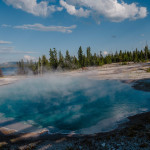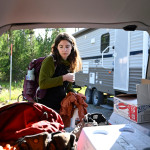Category Science & Technology
Stem cell technology developed at UW–Madison leads to new understanding of autism risks
Ashton says researchers using technologies like the RosetteArray are finding that the risk factors for autism spectrum disorder are boiling down to a couple of core pathways, that seem to have roles very early in human brain development, which is helpful information as researchers work on treatments.
Mineral coatings could enable shelf-stable mRNA therapies
A protective mineral coating identified by University of Wisconsin–Madison biomedical engineering researchers could allow powerful messenger RNA therapeutics like COVID-19 vaccines to be stored at room temperature, making them more accessible to lower-resourced communities across the world.
Newly developed material gulps down hydrogen, spits it out, protects fusion reactor walls
The advance, detailed in a paper published recently in the journal Physica Scripta, could enable more efficient compact fusion reactors that are easier to repair and maintain.
Zapping manure with special electrode promises an efficient method to produce fertilizers, other chemicals
The researchers' preliminary analyses show it could offer considerable benefits by cutting water and air pollution while simultaneously creating products that farmers could use or sell.
Federal physics advisory panel recommends funding next generation IceCube observatory, other major experiments
A group of scientists tasked with advising the federal government's investments in particle physics research is recommending that the United States fund a planned expansion of the IceCube Neutrino Observatory, an international scientific collaboration operated by the University of Wisconsin–Madison at the South Pole.
Prohibition may have extended life for those born in dry counties
Using advanced analytical methods on data from the Prohibition Era, research findings provide important nuance to the assessment of Prohibition’s effects on public health and could have important implications for policies aimed at reducing maternal alcohol use.
UW–Madison remains 8th in research ranking, surpasses $1.5 billion in research expenditures
The NSF today released its Higher Education Research and Development (HERD) data showing a 10% increase in research expenditures at UW–Madison over the previous fiscal year, or more than $143 million for the period covering July 2021 and the end of June 2022.
Antarctica’s ancient ice sheets foreshadow dynamic changes in Earth’s future
Identifying how and why Antarctica's major ice sheets behaved the way they did in the early Miocene could help inform understanding of the sheets' behavior under a warming climate.
Kids who feel their parents are less reliable take fewer risks vital to learning and growth
The researchers studied decisions that more than 150 children ages 10 to 13 made while playing games that offered opportunities to risk a little and explore for potential gains.
New paper links childhood deprivation to accelerated biological aging later in life
By using advanced epigenetic aging techniques and new data from older adults, a team of researchers found that being deprived of a nurturing childhood environment is associated with accelerated biological aging in adulthood.
Two new UW–Madison-led studies inform outlook on scaling of carbon removal technologies
The research makes it clear that ensuring the sustained well-being of our planet requires a more serious commitment toward new carbon dioxide removal technologies and a faster scale-up of their production.
UW–Madison and GE HealthCare broaden shared commitment to health care innovation
The 10-year strategic collaboration builds on strong research foundations in medical imaging and expands the scope to advance the delivery of personalized and quality healthcare into 2030 and beyond.
Scientists produce human norepinephrine neurons from stem cells, with significant implications for researching diseases like Alzheimer’s and Parkinson’s
Researchers have identified a protein that is key to the development of a type of brain cell believed to play a role in disorders like Alzheimer’s and Parkinson’s diseases and used the discovery to grow the neurons from stem cells for the first time.
UW–Madison announces new campaign video in support of College of Engineering building
The proposed College of Engineering building would allow the university to educate hundreds of additional engineers annually, significantly boosting the state’s talent pool.
Grass and shrublands burn more land and homes than forest fires
Using data sets like those the UW researchers produced can help homeowners and policymakers know what risks may be coming and where how they can better prepare for them.
Research on beer fermentation yeast reveals unexpected evolutionary process
The insight could allow for multiple applications in diverse fields, such as medicine, biofuel production, and many products and industries that involve fungi.
Tomorrow’s Yellowstone
The landscapes of Yellowstone and Grand Teton national parks are loved by people around the world, but human-driven changes to climate will make for warmer, drier conditions with more fires. Monica Turner and her lab have been studying the changes in this ecosystem for decades and they want to make sure they communicate what they’re finding with the public.
Tomorrow’s Yellowstone: Arielle
As a PhD student in Turner’s lab, Arielle Link helps with the long-term forest resilience projects the lab has been conducting since the 1988 fires. But she's also working on her own PhD work investigate how lodgepole pine forests recover after severe wildfire by studying the fungi that grow in the understory and on the roots of the trees.

